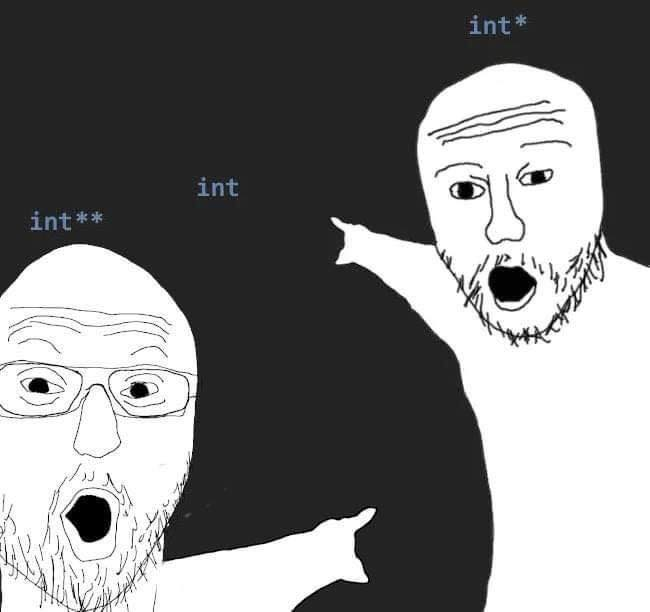I read this once before and it’s one of those facts I find endlessly fascinating. It’s simple and obvious why it wasn’t normal before recent times…
It just scratches my nerd fact itch I guess.
It’s right up there with
- social security numbers were promised to never be used as essentially your “human number” for things and would only be used for ss benefits
And
- minimum wage WAS designed and WAS intended to be a livable wage. It very specifically was proposed and made law with the point being it’s the lowest wage which a person can support themselves. People saying “minimum wage isn’t supposed to be livable wage!” Are wrong.
Oh and
-we see the color that is not absorbed by an object. So essentially we see every color the object ISNT.
Your last point is more of a philosophical / semantical one. What does it even mean that something is a specific color?
It’s like how blue butterflies actually don’t have any blue pigments but rather have a nanostructure that interferes with light in a way that favors blue.
Yes you’re right. It’s just something I like to think about.
There are these butterflies in Central America. They’re blue and orange and yellow and have poison in their wings, just enough to stop a bird heart. But the birds know this somehow, so they don’t eat them. But there are other ones, butterflies, they’re orange, blue and yellow too but no poison wings. They’re just flying around, looking dangerous, getting by on their looks.
But the birds know this somehow, so they don’t eat them.
They know this because all birds who tried to eat them, died.
It probably wasn’t written to the quantity it is today, but it doesn’t mean it wasn’t used.
Mass literacy wasn’t a thing until the past 100 years, so a lot of people didn’t even write anything down about their lives.
Even once mass literacy was adopted, the written word was generally sent to specific places. Outside of combat messengers, letters generally went to specific places where people would pick them up. If you were able to read the written message, you were probably in a known location to the sender.
It isn’t until cellular text messaging or Internet chat where it became common to not know where a person was when you were talking to them.
Unfriend
Marco! Polo!
CW (continuous wave / Morse code) over RF in the 1900s.
Walkie talkies and car phones in the 1940s.
AMPS cell phones in the 1980s.
Mostly though they’re right. When you used telecommunications systems you were largely communicating with a location or a known station, not a personal identity. Fascinating to think about.
The CW folks would presumably be sending QTH instead — I wonder if this graph captures that/if it would make an appreciable difference?
Since we have had houses with multiple rooms it has certainly made sense to shout “where are you?”
Scratch that. Since there were opaque things larger than a human that could be positioned in between two humans (rock, tree, bush, animal) it has made sense.
Scratch that. Since there was dark it has made sense.
Only recently has the response changed from “here” to something more descriptive.
Did cavemen not know Marco Polo?
Only Asians in the 13th century knew him.
It’s weird how he ended up in swimming pools.
I still like to answer here. For extra annoying points I can add ‘turn around’ a couple times.
Pretty sure people have used more descriptive answers since the dawn of language too whenever sound wasn’t a reliable direction indicator.
Maybe “up”, “down” or “over”.
You hear your buddy, but you can’t see him because of foliage in the way. “Where are you?”. This scenario could happen all throughout history.
Just call his cell phone, you’ll hear it ring through the foliage.
Or just in another room. I’m sure we’ve all asked “where are you?” to someone distant at home.
I mean, what is this chart? What are the metrics?
This is Google Ngrams, and the exact results can be found right here. It charts the frequency of a word or phrase occurring in all literature in Google’s library, by publication date. You can make interesting inferences about the popularity of words. Also, try two words, phrases or names separated by a comma to compare them side by side.
It’s really cool but people have stopped talking about it much since it came out years ago.
This is a neat tool! I searched for “how are you?” and got almost the same graph so I’m not sure if it’s as meaningful as people think. Probably more related to casual conversations being captured in text more.
yeah same with “who are you”
I looked at some of the examples of early 1800s use of “where are you?” and it seems to be used often as “where are you going?” (most common) or something else like for example “from where are you buying that?” etc.
Also seems like the way they process it, it doesn’t just look for the immediate following question mark, the question mark can be later on.
My guess would be Google scholar (or whatever their thing is called which lets you search through a bazillion indexed books and other texts)
History is rife with stories about some King/General/Warlord demanding that his princely sons lead their battalions to capture some town and then re-join his larger army. It was common to send a scout or courier to go find the sons for an update, essentially asking “where are you?”. If a long siege or other poor conditions delayed one of the princes, then by the time he arrived to the meeting location the father could already be dead, or worse, extremely disappointed.
…AND IM SO SORRY!!!
All these thoughtful answers and yet I believe this the most
The Hebrew “Ayekah” in the myth of Adam and Eve is often translated to “Where are you?”
In the story, God asks Eve this after the whole fruit thing.
Granted its probably a much more metaphorical use, as there is already an established narrative of an omnipotent, omnipresent, and all-knowing deity by this point.
Semantically it might count, but as far as the actual meaning of the words it was probably more of a question of concern and not of location.
What happened around 1900?
Everybody went blind for a hot minute
I wonder if the spike is radio, then the dip is landline telephones followed by a spike of mobile phones?
People probably realized that they should preemptively describe where they were soon afterwards, so asking about that was surely not necessary very often.
Peekaboo was invented
prolly telephones getting more attention, or maybe that morse code thing
Wizard of Oz maybe?
Right no one ever looked for anyone or snytuingnin the dark. Ffs
I had a snytuingnin once but luckily my doctor removed it.

Wherefore art thou?
That doesn’t mean “where are you” it means “why are you”. That’s why she goes on to say “would a rose by any other name not smell as sweet?” because she’s venting about how, if he didn’t have the family name he has, their love wouldn’t be forbidden.
Everyone asks wherefore art thou and whence comest thou, but no one asks how dost thou fare 😔
Alas…
I thought I remembered it being something else!
I suppose that, until recently, all communication methods made it clear to someone where the recipient of a message was. Someone getting a letter probably got it at a particular place or from a particular person, and even a phone call would often require using a particular device at a particular place. Even if you didn’t know where someone was when they received a message from you, it would be such an obvious question that people would probably provide it in a message to you even if they weren’t asked about it (see https://greatships.net/distress and https://www.youtube.com/watch?v=FxRN2nP_9dA for an example from the Titanic). This makes me think that “Where are you?” actually means “I don’t know where you are” / “I’m having trouble finding you” and is most useful when you can communicate with the person more frequently than they would announce their position (which might only describe situations when you’re talking to someone using a cell phone).
I imagine there would have been a (relative) spike between the advents of shelter and candles.
Weird… I’d expect the graph to start rising at 1969, with the invention of Scooby-Doo.










